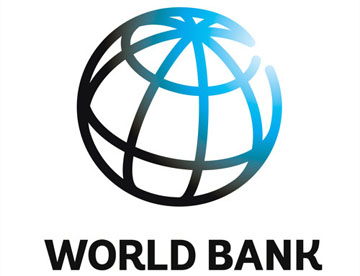DHAKA, Nov 13, 2019 (BSS) – Bangladesh needs to improve its transport and logistics performance and systems to increase its competitiveness and meet the needs of its growing economy as well as to boost export growth, says a new World Bank report launched today.
The report titled “Moving Forward: Connectivity and Logistics to Sustain Bangladesh’s Success,” finds that by making logistics more efficient, Bangladesh can significantly boost export growth, maintain its position as a leading ready-made-garments and textile producer, and create more jobs.
The report noted that congestion on roads and in seaports, high logistics costs, inadequate infrastructure, distorted logistics service markets, and fragmented governance hamper manufacturing and freight, further eroding Bangladesh’s competitive edge and putting its robust growth path at risk.
Prime Minister’s Economic Affairs Adviser Dr Mashiur Rahman spoke on the occasion as the chief guest while Guangzhe Chen, the Global Director for the Transport Practice in the World Bank’s Infrastructure Practice Group spoke as the special guest.
World Bank Country Director for Bangladesh and Bhutan Mercy Tembon gave the introductory remarks while Senior Economist at the World Bank and author of the book Matias Herrera Dappe made a power-point presentation.
Dr Mashiur Rahman said the solution to the transportation and logistics problem should be made in a longer-time perspective and the policy should be for equitable distribution of development.
“This is a good beginning and will also lead us to a more practical and optimum solution to the problem that we have,” he said while commenting on the report.
Noting that there is partial distribution of development investment in the country to some extent, the PM’s Adviser said, “If there is a wide gap between regions, there ought to be some equitable distribution of development which you can understand by looking at how the geography is defined and how the space of the development can be spread out. Without that any of our attempts will be inadequate.”
Later, in the question and answer session, Mashiur said India is now negotiating with Bangladesh for carrying goods from some places in India to either Chattogram Port or Mongla Port, but that is in the very early stages of negotiation.
Mercy Tembon said Bangladesh’s congested transportation and often unsophisticated logistics systems impose high costs to the economy.
“By making its logistics more efficient, Bangladesh can significantly optimize its connectivity, business environment, and competitiveness, putting the country on the right path to become a dynamic upper middle-income country,” she added.
The World Bank Country Director also reiterated the Washington-based lending agency’s commitment to continue to support Bangladesh in its development endeavors.
Matias Herrera Dappe, Senior Economist at the World Bank and author of the report, said, “There’s no doubt that reforms and investments for better transport and logistics will yield Bangladesh substantial economic benefits and strengthen its competitive advantage,”
In his presentation, Dappe showed that eliminating congestion could lower logistics costs by 7 percent to 35 percent while inefficiencies comprise about 25 percent of transportation costs.
The report said that logistics costs in Bangladesh are high in most sectors, ranging from 4.5 percent of sales (for leather footwear) to 47.9 percent of sales (for horticulture).
The social costs of annual carbon dioxide emissions from inter-district road freight transport in Bangladesh is equivalent to 1.2 percent of GDP, with almost 60 percent of the emissions caused by congestion.
The report showed that efficient logistics has become one of the main drivers for global trade competitiveness and export growth and diversification.
For Bangladesh, improving its logistics performance provides an opportunity to increase its world market share in garments and textiles, which account for 84 percent of its total exports, expand into new markets, and diversify its manufacturing and agriculture into high-value products.
The report noted that improving Bangladesh’s logistics requires a system-wide approach based on greater coordination among all public institutions involved in logistics and with the private sector, increasing the effective capacity of core infrastructure, and removing distortions in logistics service markets to reduce costs and improve quality.



